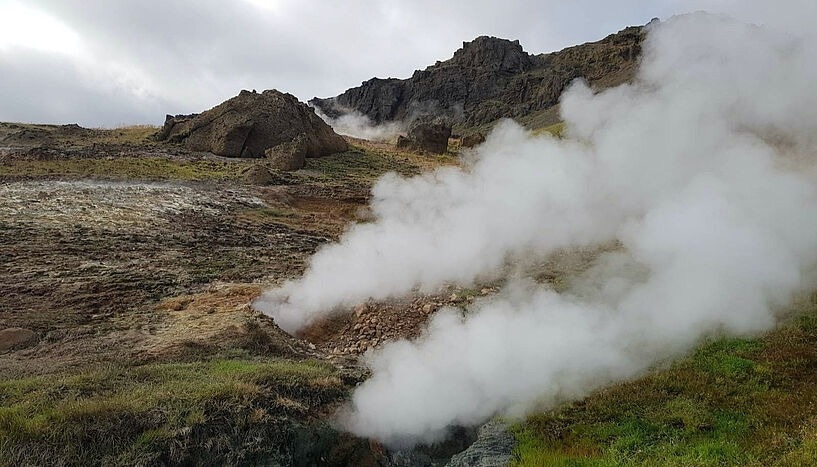Researchers at the University of Vienna’s Centre for Microbiology and Environmental Systems Science (CeMESS) have shown that warmer soils support a higher variety of living microbes. The study, which was published in Science Advances, marks a substantial advancement in the understanding of the ways in which soil microbial activity affects the global carbon cycle and potential climate feedback mechanisms.

Subarctic grassland undergoing natural geothermal warming in Iceland. Image Credit: Christina Kaiser
Up until now, scientists have believed that higher soil causes bacteria to grow more quickly, which increases the amount of carbon released into the atmosphere. However, the real reason for this enhanced carbon release is the activation of previously dormant bacteria.
Soils are Earth’s largest reservoir of organic carbon.
Andreas Richter, Study Lead Author and Professor, Centre for Microbiology and Environmental Systems Science, University of Vienna
Microorganisms are the silent leaders of the global carbon cycle, breaking down this organic matter and thereby releasing carbon dioxide. As temperatures rise – a guaranteed scenario under climate change–microbial communities are thought to emit more carbon dioxide, further accelerating climate change in a process known as soil carbon-climate feedback.
Richter added, “For decades, scientists have assumed that this response is driven by increased growth rates of individual microbial taxa in a warmer climate.”
In this study, the researchers traveled to subarctic grassland in Iceland, which has experienced geothermal warming for more than 50 years, raising the soil’s temperature above that of the nearby regions.
The researchers identified active bacterial species by comparing their growth rates at ambient and enhanced temperatures—the latter being 6 °C higher—by gathering soil samples and applying state-of-the-art isotope probing techniques.
We saw that more than 50 years of consistent soil warming increased microbial growth at the community level. But remarkably, the growth rates of microbes in warmer soils were indistinguishable to those at normal temperatures.
Dennis Metze, Study Primary Author and PhD Student, University of Vienna
The primary distinction was seen in the variety of bacteria: warmer soils supported a wider range of active microbial taxa.
Predicting Soil Microbial Activities in a Future Climate
Understanding the complexities of the soil microbiome’s reaction to climate change has been a considerable challenge, often rendering it a 'black box' in climate modeling.
Christina Kaiser, Associate Professor, Centre for Microbiology and Environmental Systems Science, University of Vienna
This new finding extends beyond the more conventional focus on community-aggregated growth, setting the stage for more accurate predictions of microbial behavior and its consequent effects on carbon cycling in the evolving climate scenario.
The knowledge gathered from this study is essential for predicting how the soil microbiome will affect future carbon dynamics and for illuminating numerous microbial responses to warming.
Journal Reference:
Metze, D., et. al. (2024) Soil warming increases the number of growing bacterial taxa but not their growth rates. Science Advances. doi:10.1126/sciadv.adk6295